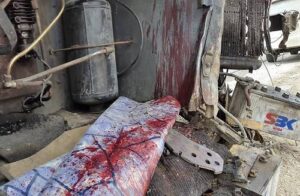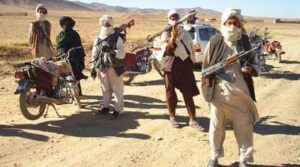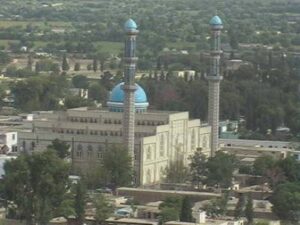GENEVA (SW): A teacher who has dedicated her life to educating Afghan refugee girls, challenging cultural sexism by setting up classes in a makeshift tent, has won a special prize awarded by the United Nations High Commissioner for Refugees (UNHCR).
This year’s Nansen Refugee Award winner, Aqeela Asifi, is being honored for her courageous work and significant contribution to refugee girls’ education.
Since arriving in Kot Chandana refugee village in Punjab, Pakistan, 23 years ago, Asifi has worked tirelessly to allow the girls of its deeply conservative and impoverished Afghan refugee community to access primary and secondary education, the UNHCR said.
To date, her hard work, sensitivity to cultural and religious values and persistence has resulted in one thousand girls having the opportunity to attend her school at both primary and secondary level, receiving national lower secondary certification. Two generations of graduates have passed through her school, going on to become teachers, pursue further education and support their families, in Pakistan as well as upon their return to Afghanistan.
Afghan refugees are one of the largest and longest displaced populations in the world. Three decades of recurrent conflict has led to the education of successive generations of Afghan refugee children being disrupted, discontinued or forgotten, due to a range of barriers that are largely outside their control.
Today an estimated 2.6 million Afghans remain in exile – mainly hosted by Pakistan and Iran.
The Afghan refugee population in both Pakistan and Iran is young, with second and third generations of children having been born into displacement. Children below the age of 14 account for half of the 2.45 million Afghan refugees in both Pakistan and Iran, while youth (aged 15–24) also make up a significant proportion of the population.
Afghan Refugees in Pakistan
In Pakistan, some 80 per cent of the school-age Afghan refugee population is currently out of school, resulting in extremely low literacy among Afghan refugees. Only an estimated 33 per cent of Afghan refugees in Pakistan are able to read and write. Literacy among women and girl refugees is even lower, at approximately 7.6 per cent.
Access to education for Afghan refugees in Pakistan sits within an extremely challenging national education context. Pakistan has the second largest number of out-of-school children in the world, with an estimated 25 million Pakistani children out-of-school. Some 62 per cent of those children are girls. As a result of these low levels of access to education, 45 per cent of the adult Pakistani population is illiterate and less than half of the female population over the age of 15 in Pakistan are able to read and write.
Afghan Refugees in Iran
In Iran, 98 per cent of the Iranian population aged 15–24 is literate and 94 per cent of the population complete primary school. Afghan refugees have the right to access Iranian public schools, although fees can be restrictive for some Afghan families. That said, in the 2013–2014 school year, 338,276 refugee children, Afghan and Iraqi, accessed education in Iran, a seven per cent increase on the previous year.
State of Education in Afghanistan
In Afghanistan, the education landscape has improved significantly since the fall of the Taliban in 2001. Enrolment rates in Afghan schools have risen, with girls’ enrolment in primary rising from less than 40 per cent to over 80 per cent and secondary rising from 5 per cent to over 34 per cent. In just five years, literacy among women and girls aged 15 to 24 has also increased to 30 per cent nationwide and to almost 40 per cent among young urban women in Afghanistan. Whilst these figures are still low, relatively speaking, they show a promising improvement in just five short years. Yet barriers remain, particularly for returnees, including poverty, socio-cultural restrictions upon girls, poor infrastructure and lack of qualified teaching staff, particularly female teachers. In provinces plagued by conflict and instability, as few as one per cent of teachers are female. In Afghanistan an estimated 3.5 million children are still out of school.
While the education landscape for Afghan refugees may be challenging, creative solutions are emerging, driven by the inspiring work of members of the Afghan refugee community like Aqeela Asifi.
Aqeela Asifi, a shining star
Asifi’s story captures the hope that education brings for a brighter, more sustainable future for Afghans, both in exile and upon return to Afghanistan. Her story is an inspiring example of how many Afghan refugees are taking their community’s struggle into their own hands, using education to break the cycle of poverty and isolation and create a new generation of empowered and educated children. By educating girls, Asifi has gone further still, ensuring the impact of her work spreads far beyond her own community and single generations – lighting the fire of education in generations of girls to come
Aqeela Asifi, 49, left Kabul with her family in 1992, and ended up living in the remote refugee settlement of Kot Chandna in the Punjab region of Pakistan, where most girls were excluded from the classroom. Despite few resources, she won over the community and persuaded parents to send their daughters to school.
Today more than a thousand children attend permanent schools in the village, said UNHCR, although around 80 per cent of Afghan refugee children in Pakistan are still out of school. The award ceremony takes place next month in Geneva, and the winner gets $100,000 to fund a project complementing their existing work.
"When you have mothers who are educated, you will almost certainly have future generations who are educated," said Asifi.
ENDS





